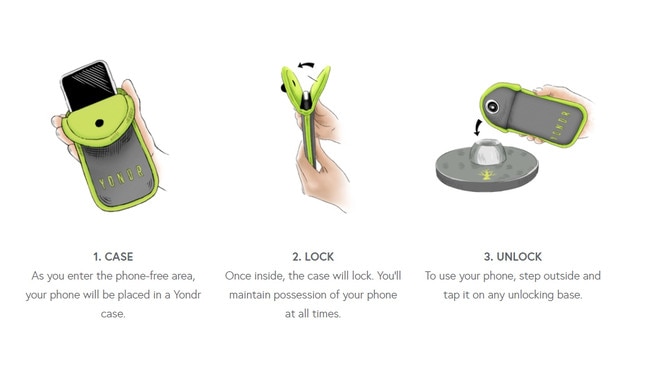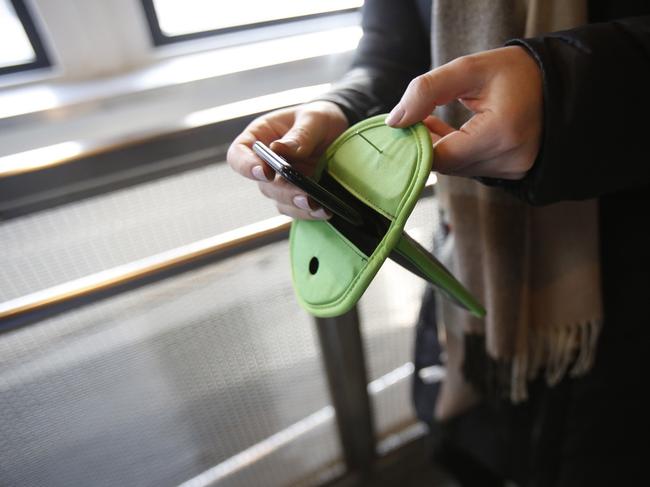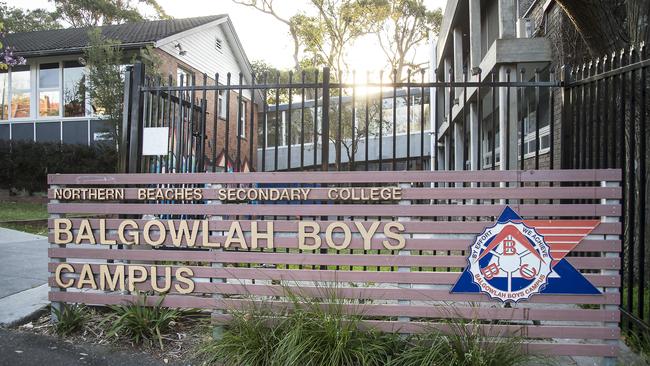Balgowlah Boys’ High School: Mobile phone ban set to start in Term 4
A ban on mobile phones at recess and lunch is set to begin at a Sydney high school to make the students healthier and talk to each other in the playground.
Manly
Don't miss out on the headlines from Manly. Followed categories will be added to My News.
A mobile phone ban is set to start at a high school on the northern beaches.
Balgowlah Boys’ High School told its 1200 students that the boys in years 7 to 10 will not have access to their phones during school hours from the beginning of Term 4.
Principal Paul Sheather confirmed on Wednesday that the school is looking at extending the ban to years 11 and 12 at the start of the 2023 school year.
The “phone free zone” policy was “about what’s best for the boys,” he told the Manly Daily.

It comes soon after another local secondary school, Davidson High, reported that its phone ban, introduced about two months ago, has already led to a drop in behavioural problems among students and a spike in physical activity.
And Mr Sheather is confident that the same move at “Bally Boys” will achieve the same results.
The school has been monitoring Australian and international research into the effects mobile phone access has on students.
It recently sent a four-page document home to parent, stating that evidence pointed to the “problematic implications on teenage attitudes, wellbeing, as well as physical, social and cognitive behaviours”.

The policy will also stop “phubbing” — going on your phone when in the presence of others, the document stated.
When school starts in Term 4, boys in years 7 to 10 will receive an individual lockable security pouch, produced by Yondr and funded by the school and P & C fundraising activities.
At the beginning of the school day the boys will put their phones in the pouch, lock it, and keep it with them or in their bags or lockers.
When the final bell rings the boys can then swipe the pouch on a magnetised device to unlock it as they leave the school grounds.

Mr Sheather said the response from the boys and their parents since he announced the plan and started consulting with them two weeks ago, had been overwhelmingly positive.
“We were getting a lot of feedback from parents saying they were having difficulty with controlling the amount of smart phone use by their sons.
“They understood the boys were using their phones at recess and lunch and preferred that the boys didn’t.”
Mr Sheather conceded that the phone ban could throw up challenges when it came to quickly distributing daily class times, but said the school might have to “go back to the future” and use hard copy timetables.

Parents would also have to call the school office during school hours to get messages to their sons.
“We’ve been seeing an increase in the use of phones, a decrease in interactions at recess and lunch and a decrease in physical activity.
“We see large numbers of boys just not moving around the school.

“As a boys’ school, one of our key pursuits is to get the boys up and have physical movement around the school.
“The sedentary behaviour means we find them less attentive in the classroom.
“We’re also hoping that without the smart phones at school, there will be less distraction, more control and an impact on their cognitive and academic skills.”

Mr Sheather there would be a “zero tolerance” approach to the ban and any phone seen during the school day will be confiscated and handed back after the final bell.
“There’s been relatively little negative feedback from the boys. They see it as a positive step in their learning.”
The Education Department said high school principals were free to manage their schools mobile phone policy in a way that works with their students and community.
“Almost all schools have some form of restriction with the majority banning phone outright,” a spokesman said.
“Mobile devices are fully restricted in primary schools.”





